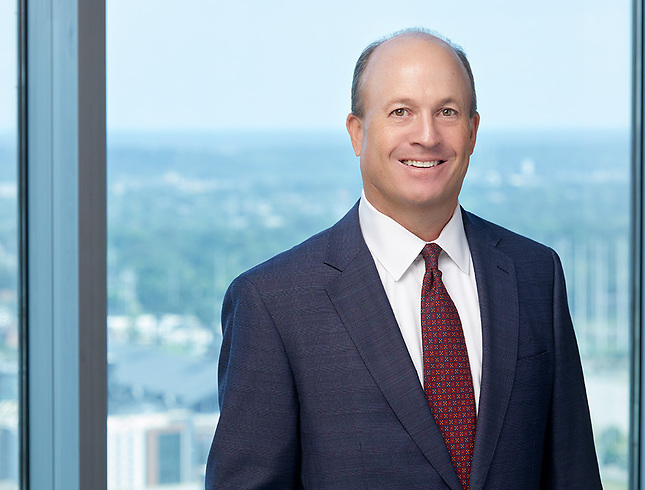- Partner
David Elliott serves on the firm's Executive Committee. David routinely defends lenders in all types of litigation, including individual actions, mass actions, and class actions ranging from common law lender liability lawsuits ...
- Partner
Rachel Cash is a partner in the firm's Financial Services Litigation Practice Group. Her practice focuses primarily on defending banks and mortgage companies against alleged violations of consumer protection laws in state and ...
Oklahoma Federal Court Finds That Dodd-Frank Amendment to Statute of Limitation for ECOA Claim Does Not Apply Retroactively
In Empire Bank v. Dumond, No. 13-CV-0388-CVE-PJC, 2013 WL 6238605 (N.D. Okla. Dec. 3, 2013), the U.S. District Court for the Northern District of Oklahoma recently held that the Dodd-Frank amendment to the statute of limitation for Equal Credit Opportunity Act ("ECOA") claims does not apply retroactively. While the court held that the statute of limitation barred spousal guarantors' ECOA counterclaim, the counterclaim was allowed to proceed because it was asserted under a recoupment theory. Empire Bank obtained guaranties from various individuals, entities, and spousal guarantors in connection with a construction loan in 2008. In 2012, Empire Bank and the guarantors, including the spousal guarantors, entered into a loan modification and extension agreement. The promissory note matured shortly thereafter, and Empire Bank filed suit against the spousal guarantors to recover the amount due. The spousal guarantors filed a counterclaim alleging that Empire Bank violated the ECOA by requiring the spousal guarantors to sign a guaranty solely because they were spouses. Empire Bank moved to dismiss the spousal guarantors' ECOA counterclaim, arguing that it was barred by the statute of limitation and that the ECOA does not apply to guarantors. Addressing Empire Bank's motion to dismiss, the court noted that an ECOA claim accrues upon execution of a guaranty, and the spousal guarantors filed their ECOA claim more than five years after execution. The court acknowledged that the Dodd Frank Act amended the ECOA by extending the statute of limitation from two years to five years. See 15 U.S.C. § 1691e(f) (2010), amended by Dodd-Frank Wall Street Reform and Consumer Protection Act, Pub. L. No. 111-203, 124 Stat. 1376 (2010). However, absent Congressional intent to the contrary, there is a presumption against retroactive legislation. Finding no intent that the Dodd-Frank Act's statute of limitation applied retroactively, the court applied the two-year statute of limitation applicable in 2008. Accordingly, the court concluded that the spousal guarantors' ECOA counterclaim was untimely. The court also rejected the spousal guarantors' argument that their counterclaim was timely under the continuing violation doctrine. Specifically, the spousal guarantors argued that the extension agreement executed in 2012 violated the ECOA and Empire Bank's conduct was, therefore, a continuing violation. Declining to adopt the spousal guarantors' reasoning, the court found that each execution was a discrete act and the continuing violation doctrine did not apply. Turning to the spousal guarantors' argument that they could assert their ECOA counterclaim under a recoupment theory, the court agreed that an ECOA claim could be asserted defensively. The court also rejected Empire Bank's argument that the ECOA did not apply because guarantors are not considered applicants. The court relied on Regulation B, promulgated by the Federal Reserve Board, and corresponding regulations, which include guarantors in the definition of applicants. Thus, the court denied Empire Bank's motion to dismiss and allowed the spousal guarantors' ECOA counterclaim to proceed under the doctrine of recoupment. For more information on consumer finance litigation topics, please contact one of the Burr & Forman team members for assistance. We are happy to answer any questions or concerns you may have.
Posted in: Dodd-Frank Act, Oklahoma


